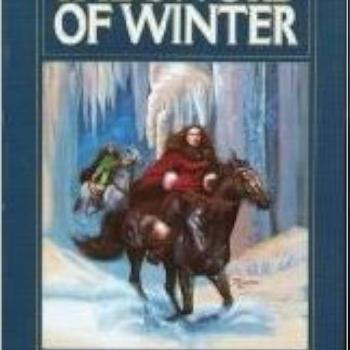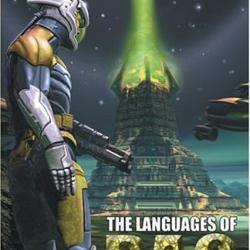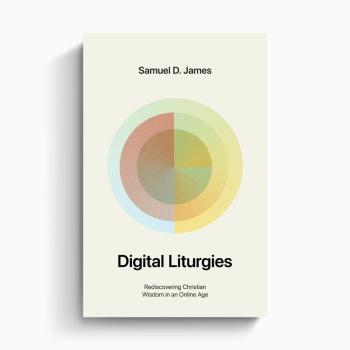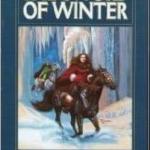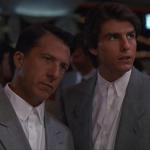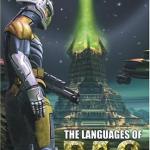Review of American Gods by Neil Gaiman
By JULIA POLESE
Neil Gaiman’s American Gods hit all the right buttons. Gaiman himself described it as an “American phantasmagoria,” an extraordinarily apt descriptor (See the interview with Gaiman in the 10th anniversary edition). It’s a fantasy novel with deep philosophical underpinnings, a healthy dollop of whimsy, and a satisfying amount of Americana. 
The book follows Shadow, an ex-con who is let out of prison early for good behavior upon the event of his wife’s untimely death in a car accident. As he tries to make his way back home to his small town to bury his wife, a strange set of “coincidences” have him sitting next to a strange old man named Wednesday on a plane who offers him a job to be his “errand boy.” Shadow, reluctant at first, is eventually convinced as all events in his life seem to be pointing to this assistant job. He then is exposed to a battle for the soul of America between the gods of the past that live and breathe through religious or pagan belief and sacrifice and the gods of the present, things like the Internet or Media anthropomorphized and thriving from Americans’ devotion to the altar of Now.
The book is full of magic and mystery that provides unique dimension to the central questions it discusses: the real life consequences of ideas and what marks American belief after modernity’s turn away from the transcendent.
It was great reading this book in light of the recent ongoing discussion about the state of American religion. Ross Douthat’s book, Bad Religion, asserts that we are a nation of heretics full of religious longing and jargon, but without much context; a combination that leads to the feel good religion of Moral Therapeutic Deism. Gaiman addresses the American propensity for belief: “People believe, thought Shadow. It’s what people do. They believe. And then they will not take responsibility for their beliefs; they conjure things, and do not trust the conjurations.” (536) American Gods features characters like the Norse god, Odin, and Anansi the trickster spider and it was easy to sympathize with the plight of their lack of worship. It is unthinkable that these gods would be actively and purposefully given praise in America today. (Jesus, however, is offhandedly mentioned as “doing very well” and, thus, cannot be enlisted for the oncoming battle for America’s soul. He would have no stake in it.)
Gaiman paints belief and “holy places” as a general universal, rather than a particular with an unchanging object. Tourist traps are frequently painted as places of worship. This conception sparks a conversation between Shadow and Wednesday as they drive through South Dakota and come upon Mount Rushmore.
As they passed their first signpost for Mount Rushmore, still several hundred miles away, Wednesday grunted. “Now that,” he said, “is a holy place.”
Shadow had thought Wednesday was asleep. He said, “I know it used to be sacred to the Indians.”
“It’s a holy place,” said Wednesday. “That’s the American Way – they need to give people an excuse to come and worship. These days, people can’t just go and see a mountain…” (340-1)
The fact of the “holy” is eternal and tied to a place, but the manner of worship necessarily changes over time. Sacred space to tourist trap. Worship to consume. The “American Way” is simply worship without object. Because America is a nation of immigrants from all kinds of backgrounds brought together under the great equalizer of “democracy,” there is no identifying god that thrives in this country. It reminds me of Tocqueville’s evaluation of the philosophical “pantheism” that can afflict democracies:
If there be a philosophical system which teaches that all things material and immaterial, visible and invisible, which the world contains, are only to be considered as the several parts of an immense Being, which alone remains unchanged amidst the continual change and ceaseless transformation of all that constitutes it, we may readily infer that such a system, although it destroy the individuality of man – nay, rather because it destroys that individuality – will have secret charms for men living in democracies. […] It naturally attracts and fixes their imagination; it fosters the pride, whilst it soothes the indolence, of their minds. (Democracy in America, Volume II, Book I, Chapter VII)
The “spiritual, but not religious” nature of the democratically minded American is shown in the novel to, instead of killing worship, create more gods. Modernity has thus not destroyed belief but redirected it. Shadow says this is a “bad land for gods” because of its changeability. “The old gods are ignored. The new gods are as quickly taken up as they are abandoned, cast aside for the next big thing. Either you’ve been forgotten, or you’re scared you’re going to be rendered obsolete, or maybe you’re just getting tired of existing on the whim of people.” (538)
In the world of the novel, redirected raw belief results in the incarnation of gods both old and new. For example, Ibis and Jackal – the Egyptian gods of the underworld – are small-town undertakers in Cairo, Missouri after being brought over in the hearts of immigrants thousands of years before (Gaiman also takes liberties with conventional historical context). The new gods, which we think already to be tangible following the empiric spirit of the age are also conjured to a physical body. One of the new gods, the Internet, is a tubby and all-around unpleasant adolescent boy whizzing around in a stretch limousine smelling of copper wire.
The physical nature of the gods emphasizes the consequences of belief. Our ideas do not remain solipsistically planted in our minds without any consequences for the world around us. The death of a pre-modern god while we were worshipping the coiffed and cliche-ridden Media god necessarily changes the makeup of culture. After reading it in prison, Shadow frequently quotes Herodotus’ Histories, which follows the changing mores of Persian culture that eventually lead to its demise, a technique which American Gods applies to the “American Way.”
The climax of the novel is a metaphysical (and physical) battle royale between the old gods and the new in which Wednesday’s motives are revealed and unlikely hero Shadow saves the day. I commend this philosophical fable to you as a good beach read that will satisfy the simultaneous desire for superhero movies and thoughts about the Higher Things.



